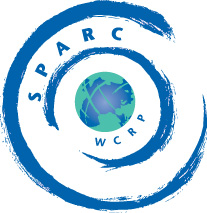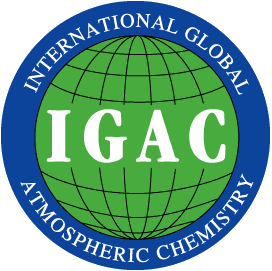SESSION SPEAKERS
Opening:
Ravi Ravishankara: Introduction
Peter Haynes: Summary of the Bad Toltz workshop
Kathy Law: Scope/logistics of this workshop
Topic 1: Which dynamical and meteorological processes govern the chemical composition of the mid-latitude UTLS?
Session convenors: Heini Wernli & Horst Fischer
Karen Rosenlof: Large-scale circulation impacts on the UT/LS
Andreas Stohl: Transport near the extratropical tropopause and focus on synoptic-scale processes
Mark Lawrence: Deep overshooting convection
Jim Whiteway: Gravity wave breaking and turbulence near the tropopause
Topic 2: What is the relative importance of chemical versus dynamical processes in governing the chemical composition of the extratropical UTLS?
Session convenors: Kathy Law & Peter Haynes
I. Characterisation of extratropical tropopause layer (ExTL) (i.e. update on observations):
Jean-Pierre Cammas
II. Role of convection/pyroconvection in affecting chemical composition of UTLS region:
Ken Pickering (effect of convection on chemical species in extratropical upper troposphere and lower stratosphere)
Mike Fromm (pyroconvection and its overall effects on the extratropical upper troposphere and lower stratosphere)
III: Mixing processes in the tropopause region, with emphasis on chemical implications:
Peter Haynes & Kathy Law (overview of previous work on effect of small-scale mixing processes on chemical distributions in UTLS region)
Geraint Vaughan (independent view on effect of small-scale mixing on chemistry)
IV: Global chemistry models -- how well do they simulate chemical distributions in UTLS:
Bram Bregman (review of performance of global chemical models in extratropical tropopause region)
Dominik Brunner (TRADEOFF based comparison of observations and chemical models in extratropical tropopause region)
Topic 3: Which chemical / physical processes are important in governing UTLS composition ?
Photochemistry, humidity and microphysics
Session convenors: Ross Salawitch & Bernd Kärcher
I. Photochemistry
Ross Salawitch (Overview)
Upper tropospheric HOx, NOx
Hanwant Singh (Precursors)
TBD (Radicals)
Very short-lived halogens
Marcel Dorf (Stratospheric bromine at the tropopause)
Roland von Glasow (Global, background tropospheric BrO)
Heterogeneous chemistry
Brett Thornton (Chlorine activation in the lowermost stratosphere)
Gas phase kinetics
Ravi Ravishankara (Recent laboratory developments)
II. Humidity and Microphysics
Bernd Kärcher (Overview)
Distributions of humidity and exchange with the tropics
Andrew Gettleman (Controlling factors, global satellite data, global models)
Gas and aerosol transport in deep convective clouds
Ken Carslaw (Aerosol modification via mixed-phase processes, ice nuclei)
Aerosol chemical composition
Dan Murphy (Sources and transport pathways, chemical reactivity)
Ice formation from aerosols
Thomas Peter (Organic and mixed-phase organic/inorganic aerosols)
Gas uptake in ice clouds
John Crowley (Lab/field studies, HO2, HNO3, organics, uptake mechanisms)
Topic 4: How can we quantify the net exchange of ozone and other trace species between the extra-tropical stratosphere and the troposphere?
Session convenors: Laura Pan & Michael Prather
Laura Pan & Michael Prather: Introduction
Andrew Gettelman: potential of AIRS ozone observations and in situ aircraft for validating models and long term monitoring
Mark Olsen: Seasonality and location of the STE O3 flux
Jennifer Logan: (1) trend in flux of ozone from the strat. to the trop. (2) Issues with using Synoz in chemical transport models
Ross Salawitch: On our understanding of ozone changes in the lowermost stratosphere
Andreas Stohl: Quantifying ozone flux – lessons learned from STACCATO
Owen Cooper: Quantifying ozone flux from stratospheric intrusion events
Joyce Penner: Quantifying STE of aerosol using information from volcanic eruption.
Kathy Law: Issues of STE and ozone flux


